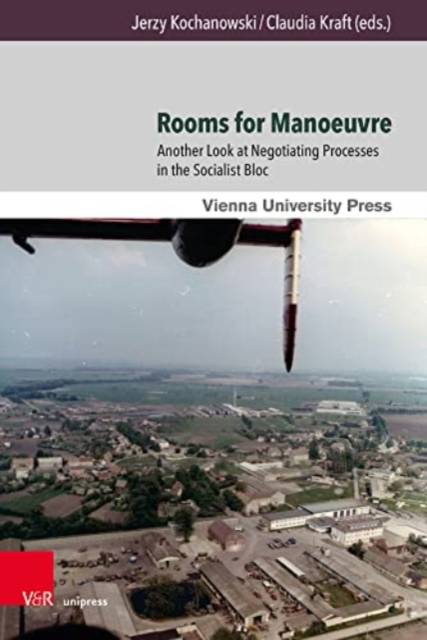
- Afhalen na 1 uur in een winkel met voorraad
- Gratis thuislevering in België vanaf € 30
- Ruim aanbod met 7 miljoen producten
- Afhalen na 1 uur in een winkel met voorraad
- Gratis thuislevering in België vanaf € 30
- Ruim aanbod met 7 miljoen producten
Zoeken
Rooms for Manoeuvre
Another Look at Negotiating Processes in the Socialist Bloc
€ 44,45
+ 88 punten
Omschrijving
The volume focuses on emerging "rooms for manoeuvre" in the socialist societies of Central and Eastern Europe after the Second World War. Unlike in other works, these areas of activity are not viewed as isolated spheres where citizens could act independently from political and societal constraints. They are rather conceptualized here as geographical, social or institutional spaces whose existence was either outside of political control or more or less intentionally allowed by authorities and other decision-makers. The contributions investigate how East Germans, Poles, Romanians, Slovaks and Czechs coped with the limitations of socialist reality. How did they adopt and successfully adapt given norms to their own specific interests? To what extent were the resulting "rooms for manoeuvre" not only essential aspects of the state socialist system, but even necessary to stabilize it?
Specificaties
Betrokkenen
- Uitgeverij:
Inhoud
- Aantal bladzijden:
- 38
- Taal:
- Engels
- Reeks:
- Reeksnummer:
- nr. 15
Eigenschappen
- Productcode (EAN):
- 9783847113362
- Verschijningsdatum:
- 6/09/2021
- Uitvoering:
- Hardcover
- Formaat:
- Genaaid
- Afmetingen:
- 155 mm x 231 mm
- Gewicht:
- 584 g

Alleen bij Standaard Boekhandel
+ 88 punten op je klantenkaart van Standaard Boekhandel
Beoordelingen
We publiceren alleen reviews die voldoen aan de voorwaarden voor reviews. Bekijk onze voorwaarden voor reviews.










